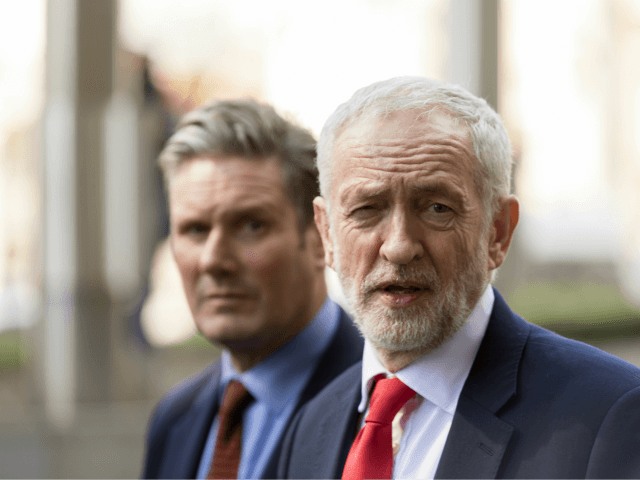Jeremy Corbyn and Keir Starmer have tabled an amendment to Prime Minister Boris Johnson’s Brexit bill that would force a two-year delay if the UK does not agree on a new trade deal with the EU.
The current leader of the Opposition and the shadow Brexit minister tipped to replace him have put forward the amendment calling for a two-year extension to the transition, or ‘implementation’, period if London and Brussels do not agree to a new trading arrangement by June 2020.
Mr Johnson has pledged he will stick to the 11-month transition period, with his European Union (Withdrawal Agreement) Bill set to outlaw any attempts to keep the UK in regulatory alignment with the EU beyond December 2020.
The amendment, put forward by Mr Corbyn and Mr Starmer, demands:
“A minister of the Crown must seek to secure agreement in the joint committee to a single decision to extend the implementation period by two years, in accordance with Article 132 of the Withdrawal Agreement unless one or more condition in subsection (2) is met.
“Those conditions are: (a) it is before 15 June 2020; (b) an agreement on the future trade relationship has been concluded; (c) the House of Commons has passed a motion in the form set out in subsection (3) and the House of Lords has considered a motion to take note of the Government’s intention not to request an extension.”
The bill is set to return to the House of Commons at committee stage on January 7th, where this and other amendments will be considered before going to the House of Lords for further scrutiny. The bill is expected to become law by the planned Brexit date of January 31st.
However, this amendment is unlikely to pass, given that the Conservative Party won last month’s general election with an 80-seat majority (which translates into an 87-seat majority as the anti-British Sinn Fein refuses to take its seats in the House of Commons, despite being elected to it).
While the election resulted in the largest majority for the Conservative Party since Margaret Thatcher was returned to power in 1987, it also left the Labour Party machine reeling after experiencing its worst defeat since 1935.
The Tories were able to win such a decisive victory after breaking through the Red Wall, an area in the north of England comprised of traditionally Labour-supporting, working-class Leavers. Labour Brexiteers switched sides as a result of feeling abandoned by a party that had become dominated, first, by progressive-globalist Tony Blair and, then, socialist Jeremy Corbyn.
While Labour seeks to rebuild itself after its loss, a poll has revealed that party members back the Europhile Brexit secretary Keir Starmer to replace Corbyn, a move which a former Labour Party strategist said would do little to win back voters in the heartlands.
“Much as I respect Keir and think he has a big role to play, electing as leader the man who drove Labour ‘quickly through the gears’ to support a second referendum would be like a parody of how out of touch we are with the voters we need to win back,” said Steve Howell.

COMMENTS
Please let us know if you're having issues with commenting.